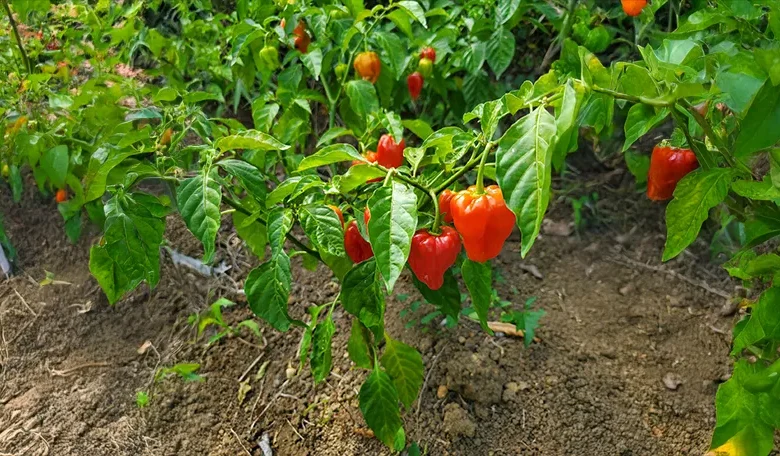Dominica Hot Peppers

Dominica Hot Peppers hold a special place among the island’s emerging agricultural success stories. Cultivated across various parishes, including Marigot, Wesley, and Castle Bruce, these peppers display a broad spectrum of heat—from moderately spicy to flaming hot varieties like scotch bonnet and habanero. The island’s Volcanic Origins provide nutrient-rich soils, and the tropical climate, with ample rainfall, supports robust pepper harvests nearly year-round. In the wake of Dominica’s drive for agricultural diversification, hot peppers have become a lucrative alternative for many smallholder farmers transitioning from historically dominant crops such as bananas.
Cultivation, Production, and Organizational Support of Hot Peppers
Hot pepper farming in Dominica now involves over 80 registered smallholders, dedicating anywhere from half an acre to multiple acres. Recent data from the Dominica Rural Enterprise Project (D-REP) estimate annual yields at over 100 metric tons—a 25% increase since 2018. This growth ties closely to the National Association of Youth in Agriculture (NAYA), which mentors younger farmers in greenhouse cultivation, soil health, and organic alternatives. Many pepper growers employ integrated pest management consistent with the Organic Dominica Initiative, aiming to maintain ecological balance while meeting commercial demands.
Other pivotal organizations also contribute to the industry’s progress:
- Dominica Banana Marketing Corporation (DBMC): Historically focused on bananas, but today assisting pepper farmers with logistics and export coordination.
- Dominica Banana Growers Association (DBGA): Advises on shipping routes and distribution channels, sharing insights gained from decades of banana export experience.
- Food and Agriculture Organization (FAO) in Dominica: Offers technical guidance on improved irrigation, seed selection, and disease control.
- Agricultural Produce Procurement Facility: Acts as an intermediary for sales to hotels, restaurants, and processing companies that convert peppers into sauces, dried spice mixes, and other products.
DEXIA’s Role and Market Facilitation for Hot Peppers
An often-overlooked yet essential player in Dominica’s hot pepper ecosystem is the Dominica Export Import Agency (DEXIA). Established to promote and facilitate trade, DEXIA provides the following services tailored to hot pepper growers and exporters:
-
Export Market Research and Promotion
- Keeps farmers informed of global pricing trends, market demands, and potential overseas buyers.
- Coordinates trade missions and exhibitions where pepper-based products—like hot sauces, pickled peppers, or dried peppers—are showcased to international distributors.
-
Quality Assurance and Compliance
- Guides producers on labeling, packaging, and sanitary requirements for entry into regional and extra-regional markets.
- Works closely with the Dominica Rural Enterprise Project (D-REP) and private testing labs to ensure peppers meet relevant safety and quality standards (e.g., microbial limits, pesticide residue checks).
-
Logistics and Brokerage
- Helps navigate customs procedures for those shipping peppers to the Caribbean diaspora or North American specialty food distributors.
- Offers training sessions on documentation and cost-effective transport methods, reducing potential bottlenecks that small-scale farmers might otherwise face.
-
Financial Linkages
- In some cases, assists farmers in accessing credit or grants tied to export capacity, partnering with local cooperatives and government funds.
- Liaises with institutions like the National Export Strategy (NES) to secure additional resources aimed at scaling pepper production or upgrading storage facilities.
Through these measures, DEXIA ensures that pepper growers and agro-processors can enter competitive markets beyond Dominica’s shores. Their role spans strategic counsel—identifying premium buyers who value traceable, eco-friendly produce—and practical help in clearing international shipping hurdles.
Processing, Companies, and Future Prospects
Pepper-based manufacturing in Dominica continues to flourish, led by brands such as Josephine’s Touch Enterprise, Nature’s Fuzion Inc and Zlicious Blendz. They purchase fresh peppers directly from farmers, turning them into hot sauces, pepper jellies, and spice rubs. With DEXIA’s assistance in marketing and compliance, some of these finished products now appear in boutique food stores throughout the Eastern Caribbean and sporadically in North American specialty shops.
Looking ahead, many producers plan to expand greenhouse acreage and adopt climate-smart tactics like drip irrigation to mitigate weather extremes. By collaborating with recognized entities—DBMC, DBGA, NAYA, and especially DEXIA—farmers ensure that their peppers gain visibility in promising global niches. The synergy between effective farming, streamlined exports, and strong branding shows how Dominica’s pepper industry can succeed in meeting rising global demand for bold Caribbean flavors.
Dominica’s hot pepper story demonstrates the island’s ability to diversify beyond bananas and root crops. DEXIA’s involvement in export facilitation, quality assurance, and financial linkages stands out as a critical bridge for smallholders aspiring to commercial success in a dynamic global market. This alignment of resources, expertise, and agricultural potential highlights Dominica’s long-standing resilience and forward-thinking orientation in nurturing its agricultural sector.




